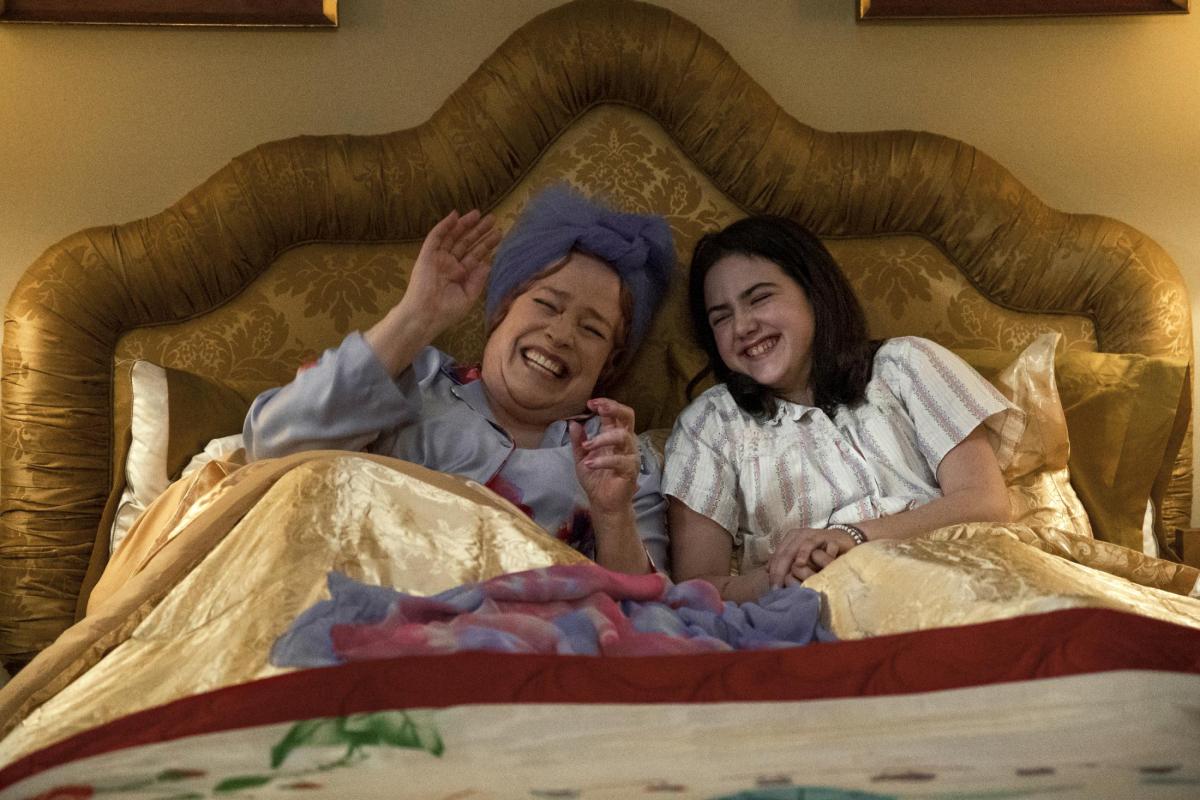
It’s hard to explain how important Judy Blume’s book, Are You There God? It’s Me, Margaret, was to me as a tween. Yes, there were other books with young female protagonists—massively outnumbered by books where a boy finds out he’s the chosen one, mind you—but they usually had some level of exoticism to them. They took place on a prairie, or in an orphanage, or at a homestead in Massachusetts during the American Civil War. Are You There God took place in the suburbs of New Jersey, just a couple of hours down the turnpike from where I lived on Long Island. And it was about a girl like me—someone smart, who loved her parents, and who worried about friends and boys and fitting in and, most of all, the mystifying changes her body was going through as she hurtled toward puberty. (The conversations-with-God thing wasn’t my bag, but I saw them as a sort of spoken word performance.)
Of course, I wasn’t the only 11-year-old girl who worshiped the book—it was a massive bestseller. Which might prompt the question: Why hadn’t it been made into a movie sooner, especially once John Hughes began churning out his Teenage Angst Cinematic Universe?
I can’t say for sure, but I suspect it’s because very little actually happens in the book.
Margaret (the appealing Abby Ryder Fortson) moves from Manhattan to the suburbs of New Jersey, much to her dismay—and the even greater dismay of her widowed grandmother (Kathy Bates), to whom she is close. Her mother, Barbara (winning-as-ever Rachel McAdams), is an art teacher who has convinced herself she wants nothing more than to be a suburban PTA mom. Her father, Herb (Benny Safdie!), also has dreams of being the type of suburban dad who mows lawns. (A dream deferred when he cuts his hand on the lawn mower—it was grislier in the book.) Notably, Mom is Christian and Dad is Jewish and they tell Margaret she can pick her religion when she becomes an adult—hence all the talking-to-God stuff.
Upon arriving to her new home, Margaret meets young Nancy Wheeler (Elle Graham)—pretty, blonde, dressed in pastels—who promptly informs her that she lives in the “bigger house down the block.” They become friends, of sorts, and Nancy even invites Margaret to her secret club, which consists of Nancy and two other girls. The rules: If you like a boy, you’ve got to fess up. The minute you get your period, you have to tell everyone in the club IMMEDIATELY. And you must wear a bra.
The whole bra-wearing thing is a source of particular mortification for Margaret, who is flat-chested. Her mother nonetheless gamely takes her to the department store for a training bra. She wears it to school and tells her mother, “I can’t wait to take it off.”
“Welcome to womanhood,” her mom says.
So yes, these are the stakes—impossibly low to us as viewers but, of course, life-or-death to young Margaret.
And director Kelly Fremon Craig understands this. Her charming adaptation is filled with affection for both the novel and its characters. She doesn’t try to ramp up the drama. She accepts it for what it is. I don’t think this film could’ve worked if Craig hadn’t demonstrated such an obvious affinity for the material. She deftly highlights the book’s humor, from the infamous chant of “we must, we must, we must increase our bust!” to Margaret’s hormones stirred by the sight of her crush’s underarm hair to grandma’s self-pitying melodrama: “I read when you don’t have any loved ones around your life expectancy drops drastically,” she tells her daughter-in-law.
Indeed, the film’s gentleness, its goodness, feels like a bit like a tonic. Fifty-three years after its publication, they finally made a film out of Are You There God? It’s Me, Margaret. And not a moment too soon.
